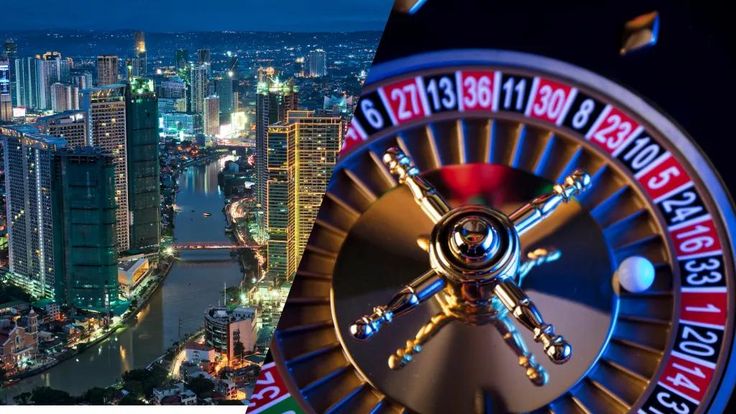J. Albert Gamboa l November 15, 2024 l The Manila Times

THE country’s gaming industry is seen to weather the storm from the controversial Philippine offshore gaming operators (POGOs), which will be totally banned from operating throughout the archipelago effective Dec. 31.
Last week, President Ferdinand Marcos Jr. issued Executive Order (EO) 74 imposing an immediate ban on all POGO operations, including those which have obtained Internet Gaming Licenses (IGLs). The order came four months after Marcos announced a total ban on POGOs and IGLs in his State of the Nation Address (SONA) last July.
EO 74 is not limited to the POGO licensees of the Philippine Amusement and Gaming Corp. (Pagcor). It also prohibits those operating in special economic zones, such as the Cagayan Economic Zone Authority (CEZA). In fact, Executive Secretary Lucas Bersamin ordered CEZA to comply with the ban through a memorandum to CEZA Administrator Katrina Ponce Enrile last Nov. 5.
Bersamin’s memo to Enrile said: “Consistent with Republic Act 7922, also known as the Cagayan Special Economic Zone Act of 1995, you are hereby instructed to adhere to the directive issued by the President during his SONA on 22 July 2024 regarding the immediate ban on POGOs or IGLs in the Philippines, subject to applicable laws, rules, and regulations.”
Interestingly, not all POGOs are operated by Chinese companies. One example is DFNN Inc., a listed firm in the Philippine Stock Exchange (PSE). This Filipino-owned company’s subsidiary, Nico Bayan Inc., bagged a POGO service deal in 2019 after signing a joint venture agreement with a pioneering US mobile lottery service provider based in San Francisco, California, called AutoLotto Inc.
But DFNN put the business on hold due to Covid-19 and the Philippine government’s review of illegal activities among POGO operators, as well as China’s crackdown on POGOs. The forthcoming ban on offshore gaming will not affect the DFNN’s operations.
In a disclosure to the PSE this week, DFNN said it has signed an agreement to provide expanded technology services to the Philippine Charity Sweepstake Office (PCSO) to boost the state-run charitable institution’s lotto operations. DFNN will serve as a Corporate Business Level 2 agent of PCSO to increase sales and enhance the contributions of lotto operations.
“The services have soft-launched over the weekend,” said its regulatory filing with the PSE.
DFNN’s business is mainly driven by the gaming industry, where it pools about 80 percent of its revenues. The remainder comes from its non-gaming operations comprised of fintech and systems integration services.
It is not clear whether the POGO ban will affect the Philippine Inland Gaming Operators (PIGOs) that cater to the domestic market, unlike the POGOs that focus on overseas markets. According to Pagcor sources cited by the Asia Gaming Brief, PIGOs have continued to expand in the post-pandemic era. As of June 2024, Pagcor has authorized a total of 44 PIGO service providers since the first onshore licenses were issued in late 2020.
Amid the impending deadline on POGOs set by Malacañang at yearend, there is a need to strengthen the executive order due to gray areas and loopholes cited by some legislators. Most glaring is the lack of an explicit declaration that the ban will cover even non-Pagcor-supervised establishments. This was recently pointed out by Sen. Risa Hontiveros, who led the Senate investigation on POGOs in Tarlac and Pampanga that eventually unmasked former mayor Alice Guo as one of those behind the illegal operations.
However, despite the negative reputation of POGOs, the Philippine gaming industry grew by 19.2 percent year on year in the first six months of 2024. The Macau-based publication Inside Asian Gaming (IAG) reported Pagcor estimated the industry’s total gaming revenues have reached P194.7 billion in the first half of 2024 — boosted by the rise of e-games and e-bingo grantees.
Licensed casinos, including those in Entertainment City Manila, Clark Freeport and Cebu City, were the biggest contributors to gross gaming revenue (GGR), a key metric used by the gaming industry. Pagcor-operated casinos declined in GGR, though, by 11.6 percent year on year.
Given the hefty revenue growth in the e-games sector and more investors signifying their intent to enter the Philippine market, it is likely that 2024 will be a banner year for the local gaming industry.
*** J. Albert Gamboa is the chief finance officer of Asian Center for Legal Excellence and vice chairman of the Finex Ethics Committee. The opinions expressed here do not necessarily reflect the views of Finex and The Manila Times.

